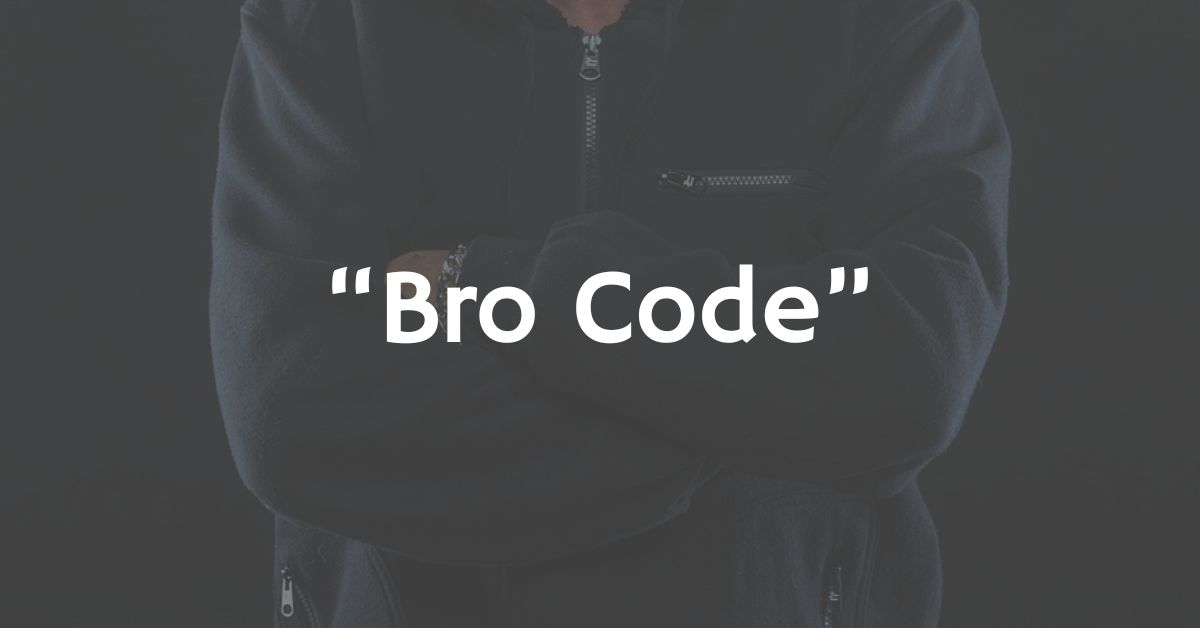The “Bro Code” and Its Discriminatory Impact on Women
In recent years, the concept of the “Bro Code” has gained significant traction in popular culture, often portrayed as a set of unwritten rules that govern the behavior and loyalty among male friends. While it may seem harmless or even humorous on the surface, the “Bro Code” perpetuates harmful stereotypes and reinforces gender-based discrimination, particularly against women. This article delves into why the “Bro Code” is discriminatory, how it contributes to a culture that marginalizes women, and why it can harm women in profound ways.
What is the “Bro Code”?
The “Bro Code” is an informal set of guidelines that dictate how men should interact with each other, often emphasizing loyalty, secrecy, and mutual support. It is frequently referenced in movies, TV shows, and social media, where it is portrayed as a bonding mechanism among male friends. However, beneath the surface, the “Bro Code” often includes rules that objectify women, promote toxic masculinity, and create an environment where women are treated as secondary to male relationships.
Why Can the “Bro Code” Harm Women?
The “Bro Code” is not just a harmless set of rules among friends; it has real-world consequences that can harm women in various ways. By prioritizing male loyalty and perpetuating harmful gender norms, the “Bro Code” creates a culture where women are disrespected, objectified, and excluded. Here are some specific ways the “Bro Code” can harm women:
1. Normalizes Objectification
The “Bro Code” often reduces women to objects or conquests, rather than treating them as individuals with their own thoughts, feelings, and agency. For example, rules that dictate how men should “share” or “not pursue” women who are associated with their friends contribute to a culture where women are seen as property. This objectification can lead to a lack of respect for women’s autonomy and perpetuate harmful stereotypes that dehumanize them.
2. Encourages Toxic Masculinity
The “Bro Code” reinforces toxic masculinity by promoting behaviors such as emotional suppression, aggression, and the devaluation of traits traditionally considered feminine. This can create an environment where men feel pressured to conform to rigid gender roles, often at the expense of women. For instance, men may feel compelled to prioritize their male friendships over their relationships with women, leading to dismissive or disrespectful behavior toward women.
3. Silences Women’s Voices
One of the most damaging aspects of the “Bro Code” is its role in silencing women. Rules that prioritize male loyalty over honesty or fairness can lead to situations where women’s concerns or experiences are dismissed or ignored. For example, if a woman raises an issue about a man’s behavior, the “Bro Code” may compel his friends to defend him regardless of the validity of her claims. This dynamic creates a power imbalance where women are less likely to be believed or supported, further entrenching gender-based discrimination.
4. Perpetuates Exclusion and Marginalization
The “Bro Code” inherently creates an exclusive male-centric environment where women are often sidelined. By prioritizing male relationships and loyalty above all else, the “Bro Code” fosters a culture where women are viewed as outsiders or intruders. This exclusion can manifest in various ways, from men dismissing women’s opinions in group settings to actively discouraging mixed-gender friendships that might challenge the status quo.
5. Enables Harmful Behavior
In some cases, the “Bro Code” can enable or excuse harmful behavior toward women. For example, men may feel pressured to cover up or downplay inappropriate actions by their friends, such as harassment or infidelity, in the name of loyalty. This not only harms the women directly affected but also perpetuates a culture where such behavior is normalized and unchallenged.
The Broader Impact on Society
The “Bro Code” is not just a harmless set of guidelines among friends; it is a reflection of broader societal attitudes that perpetuate gender inequality. By normalizing behaviors that discriminate against women, the “Bro Code” contributes to a culture where women are consistently undervalued and marginalized. This has far-reaching implications, from the workplace to personal relationships, where women often face systemic barriers to equality and respect.
Moreover, the “Bro Code” reinforces the idea that men and women cannot interact on equal terms, perpetuating a binary view of gender that is increasingly out of step with modern understandings of gender diversity. In a world that is striving for greater inclusivity and equality, the “Bro Code” stands as a relic of outdated and harmful gender norms.
Moving Beyond the “Bro Code”
To combat the discrimination perpetuated by the “Bro Code,” it is essential to challenge and dismantle the underlying attitudes that sustain it. This begins with fostering a culture of respect, equality, and inclusivity, where all individuals are valued for who they are rather than their gender. Men, in particular, have a crucial role to play in this process by rejecting the “Bro Code” and embracing behaviors that promote gender equality.
- Promote Healthy Relationships: Encourage relationships that are based on mutual respect and understanding, rather than rigid gender roles. This includes fostering friendships and partnerships that value open communication, empathy, and equality.
- Challenge Toxic Masculinity: Actively work to dismantle the norms of toxic masculinity by embracing a broader and more inclusive definition of what it means to be a man. This includes rejecting behaviors that prioritize dominance, aggression, and emotional suppression.
- Amplify Women’s Voices: Create spaces where women’s voices are heard and valued. This means actively listening to women’s experiences, supporting their concerns, and challenging behaviors that seek to silence or marginalize them.
- Educate and Advocate: Education is a powerful tool in the fight against discrimination. By raising awareness about the harmful impact of the “Bro Code” and advocating for gender equality, we can work towards a society where everyone is treated with dignity and respect.
Final Conclusion
The “Bro Code” may seem like a harmless set of rules among friends, but its implications are far-reaching and deeply damaging. By objectifying women, reinforcing toxic masculinity, and perpetuating gender-based discrimination, the “Bro Code” contributes to a culture that marginalizes and devalues women. It is time to move beyond these outdated norms and embrace a more inclusive and equitable vision of relationships and society. Only by challenging the “Bro Code” and the attitudes it represents can we hope to create a world where everyone, regardless of gender, is treated with the respect and dignity they deserve.

